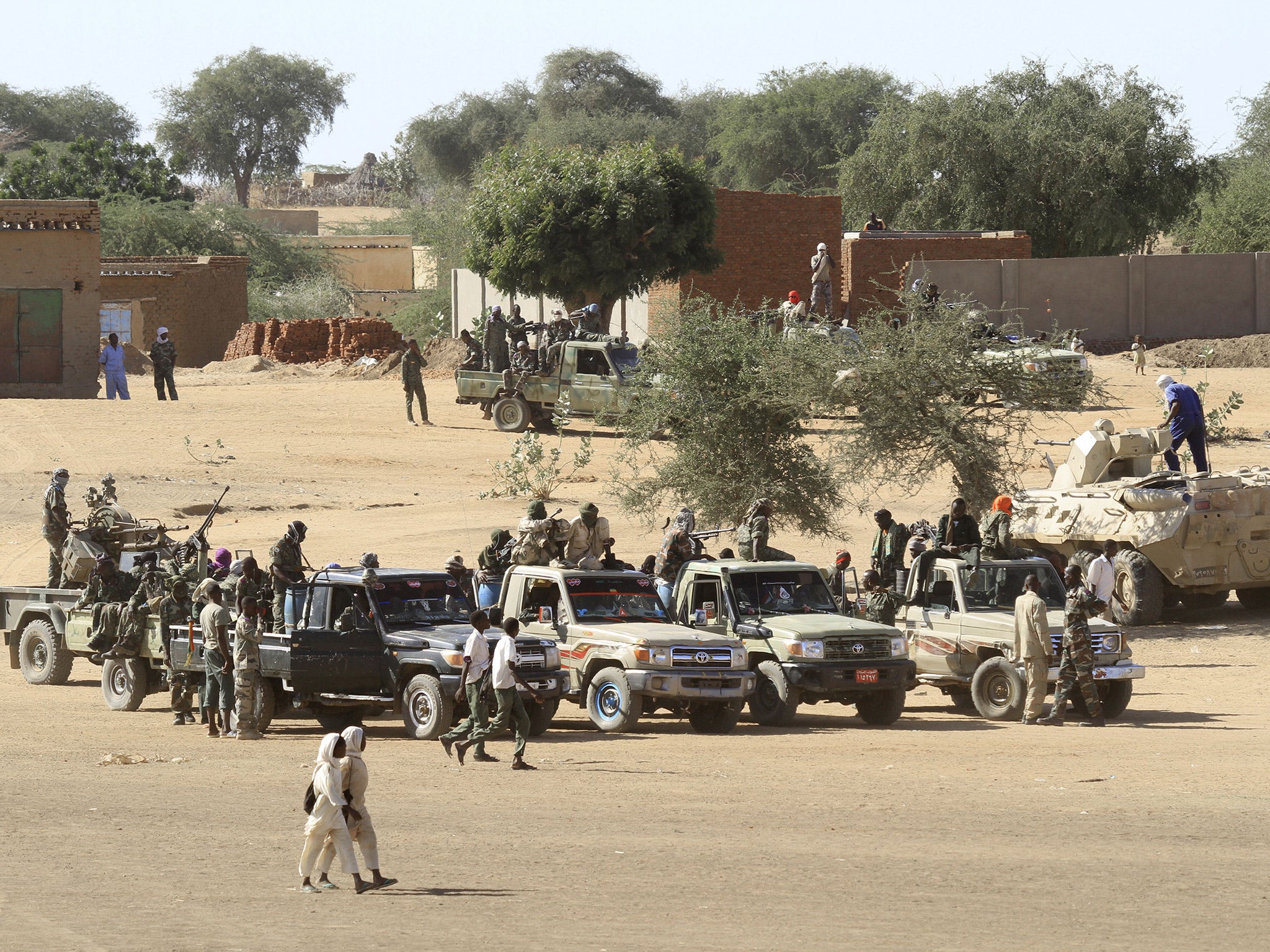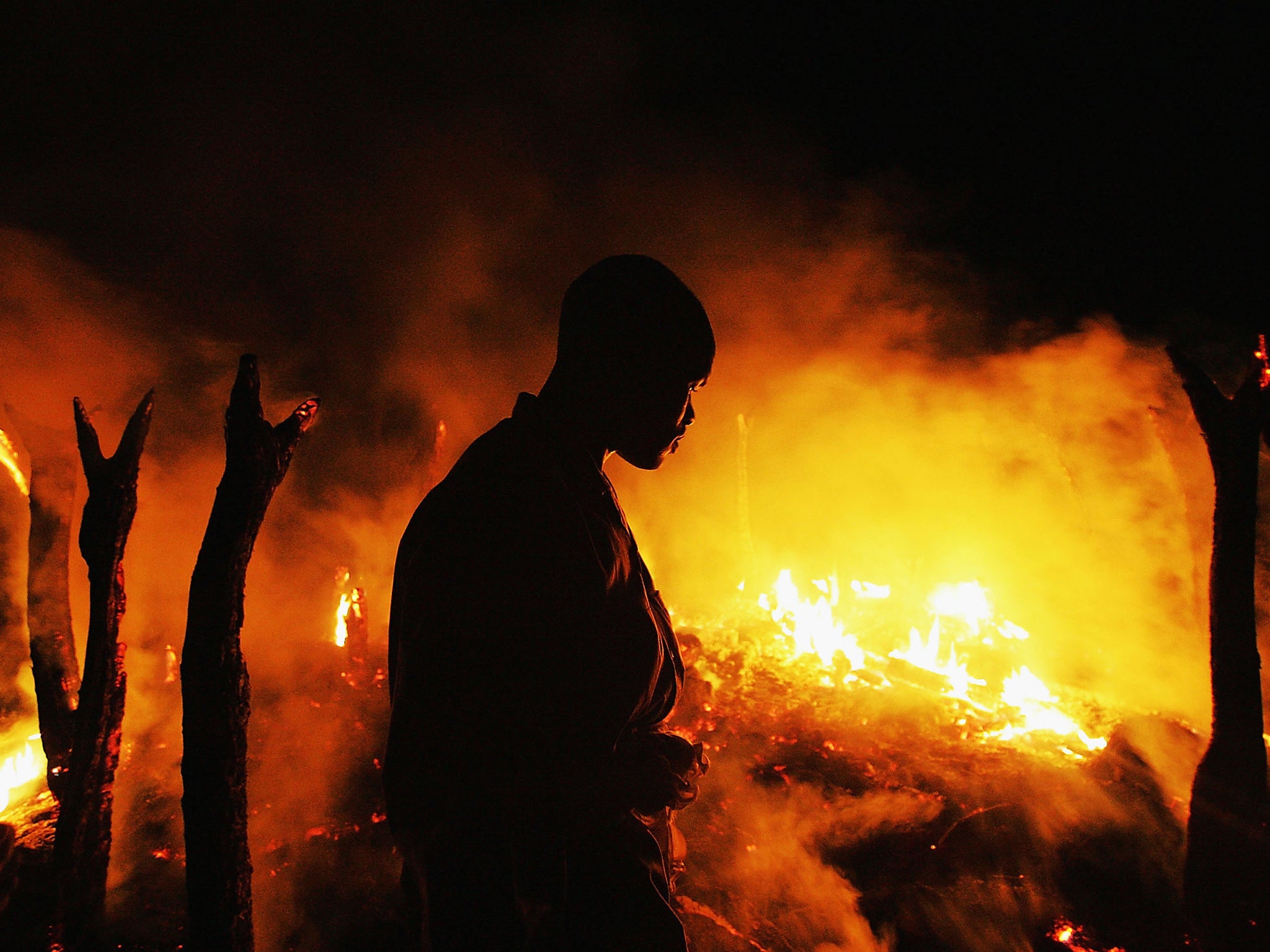Mass rape in Darfur: Sudanese army blamed for multiple attacks on women
Human Rights Watch report claims 221 women were raped in a three-day period last October
Over 200 women and girls in Darfur were raped over three days in a “widespread, organised and systematic” attack by Sudanese government forces, a Human Rights Watch report claims today.
“They did it one by one. One helped beat and the other raped. Then they would go to the next girl,” survivor Khatera claimed in the 48-page report detailing the atrocities in Tabit, a town of 7,000 in the Darfur region of Sudan, over a three-day period at the end of October 2014.
Khatera - who is in her 40s - and her three daughters were among the 221 women raped by Sudan Armed Forces (SAF) soldiers. Two of her daughters were under 11 years old at the time of the attack.
Jonathan Loeb, author of the HRW report, told The Independent: “Members of the Sudanese army carried out attacks and committed a rage of abuses including beatings, intimidation and most horribly raping women in the town in a widespread, organised, systematic manner.”
Many of the women attacked were beaten and raped multiple times, often in front of their families and friends, and by soldiers and plainclothes men they knew from the SAF base, which is located just half a kilometre from Tabit’s centre.

“Eighteen soldiers came into our house. Three took the men out. They beat the men with the back of their guns. Then they dragged [the men] out of the house,” Nadia, in her twenties, told HRW.
“Then the 15 [remaining soldiers] raped us, all four of us. They beat us and they did whatever they wanted.”
Based on the systematic testimonies of 15 survivors, and an additional 21 credible witnesses, the HRW report details how soldiers burst into homes, accused the residents of harbouring either a member of the rebel forces or of killing a missing solider, and then beat the man before they raped the women of the family.
“Two soldiers separately said they were given direct orders to attack and specifically to rape, on the pretext of the missing soldier,” Mr Loeb said, but added that the motivation for the attack on Tabbit, wrestled from rebel control in 2011, remained unclear.
On two of the nights hundreds of the town’s men were forcibly marched by soldiers and then beaten on the outskirts of Tabit, leaving women particularly vulnerable as the soldiers moved in.
Umm-Jumma, in her thirties, heard screaming and ran to her mother’s compound intending to resist.
“When they saw that I wanted to fight they threatened me with their gun. Then they raped me. There were four of them. Two had civilian clothes. [They raped me] in front of my mother. She was screaming,” she said.
News of the attack was first broken by Netherlands-based radio station Radio Dabanga and immediately denied by Sudanese authorities, who accused the station of “spreading lies”.

Access to the town, in the west of Sudan in a region still recovering from decades of civil war, was closed down and although one investigation was let in on 9 November, a campaigners insist it is unreliable.
“Victims were threatened and investigators were not allowed to interview them without the presence of officials,” said Mr Loeb. “It was completely compromised and we need access to the site so that a proper investigation can be carried out.”
Subsequently international investigators have been repeatedly denied access by the Sudanese government.
The report claims since the attack government officials, military commanders, and traditional leaders have silenced the town’s community with threats and by arbitrarily arresting people who speak out.
One man, who phoned a relative about the atrocities, claimed he was told, “If I talked about Tabit again that I was going to be finished. They kicked me. Tied me and hanged me up. They beat me with whips and electric wires.”
Few of the women have been able to seek medical care. HRW documented cases of family members being punished for seeking doctors to help victims and of local authorities intimidating healthcare professionals and restricting access to doctors.
One female resident of the town told HRW they had been “living in an open prison”.
“The thing to keep in mind about the town and the people in it is that many of the women who were raped are still living there, without protection and near the men who attacked them,” Mr Loeb explained.
Although some of the women have fled to IDP camps, HRW is calling on the UN peacekeepers - who are stationed nearby - to establish a permanent camp in the town in order to protect venerable civilians.
They are also calling for an independent investigation by experienced and impartial individuals, who crucially have an understanding of sexual violence atrocities, and can give victims a safe space in which to share their experiences.
Daniel Bekele , Africa director at Human Rights Watch, labelled the attacks a “new low in the catalog of atrocities in Darfur”.
He continued: “The Sudanese government should stop the denials and immediately give peacekeepers and international investigators access to Tabit.”
Meanwhile, in the town victims - many untreated and seemingly ignored - still see their attackers daily.
A female rape survivor told HRW: “We want people to know that we are suffering. We don’t want to suffer anymore.”